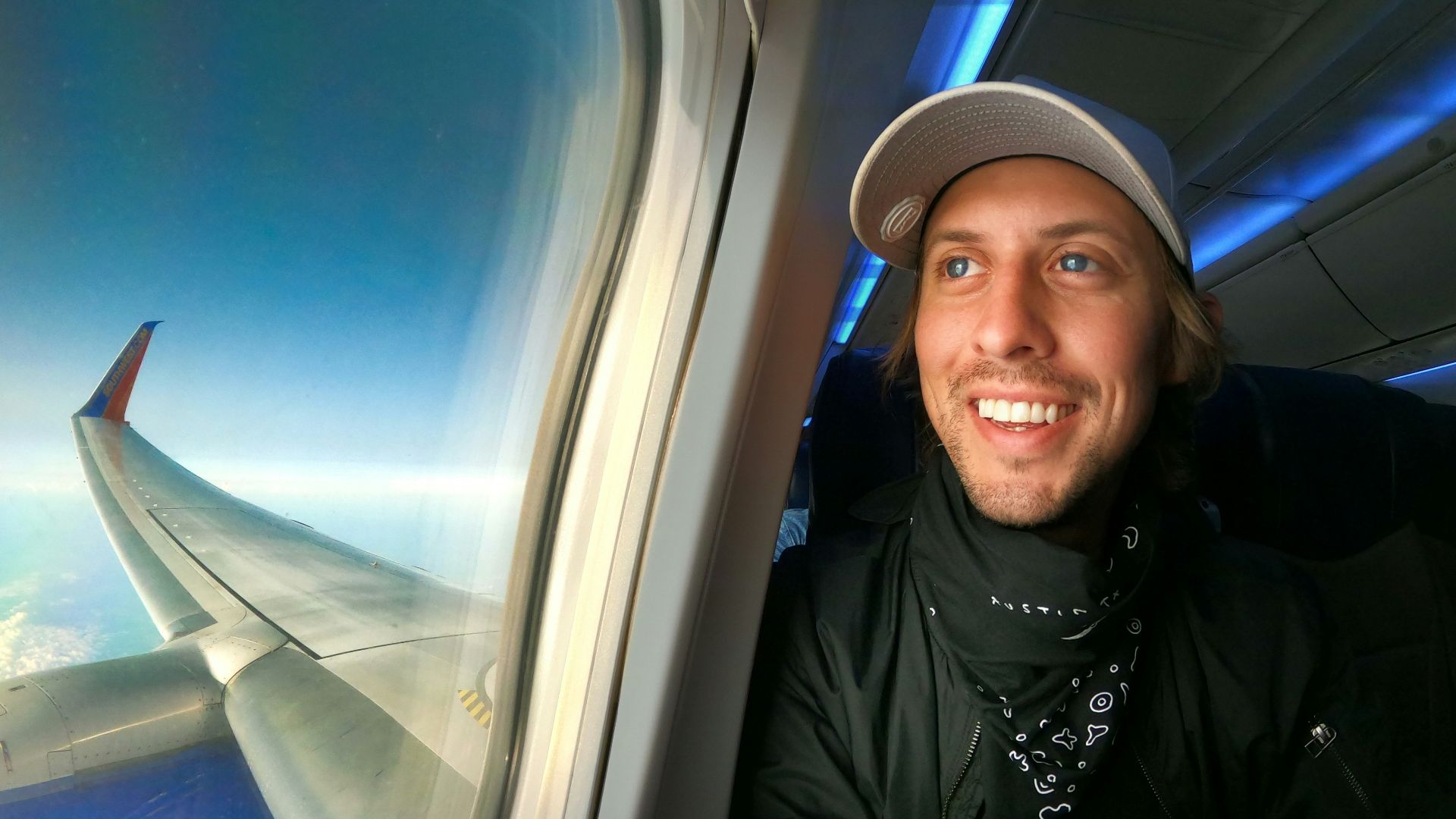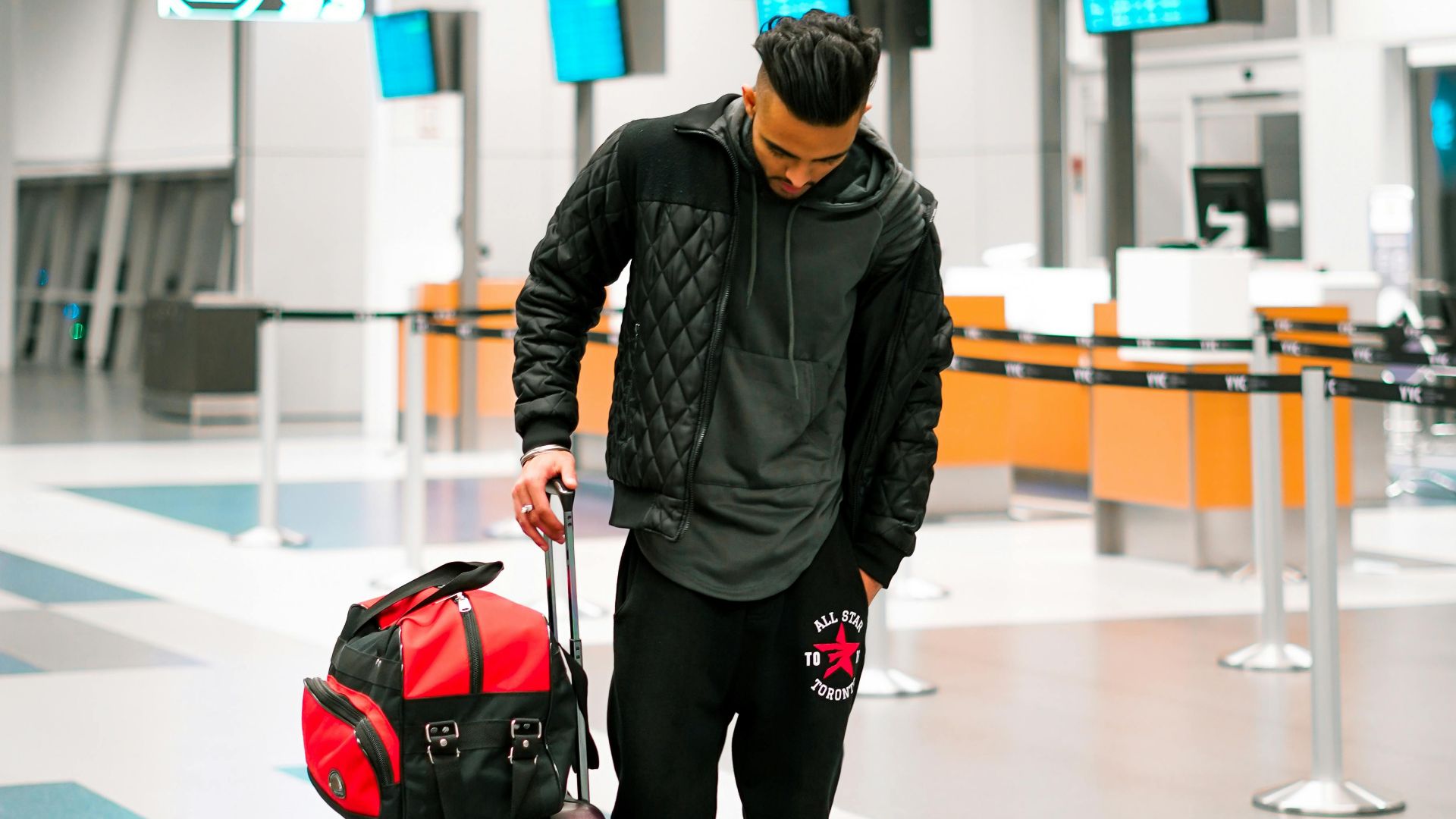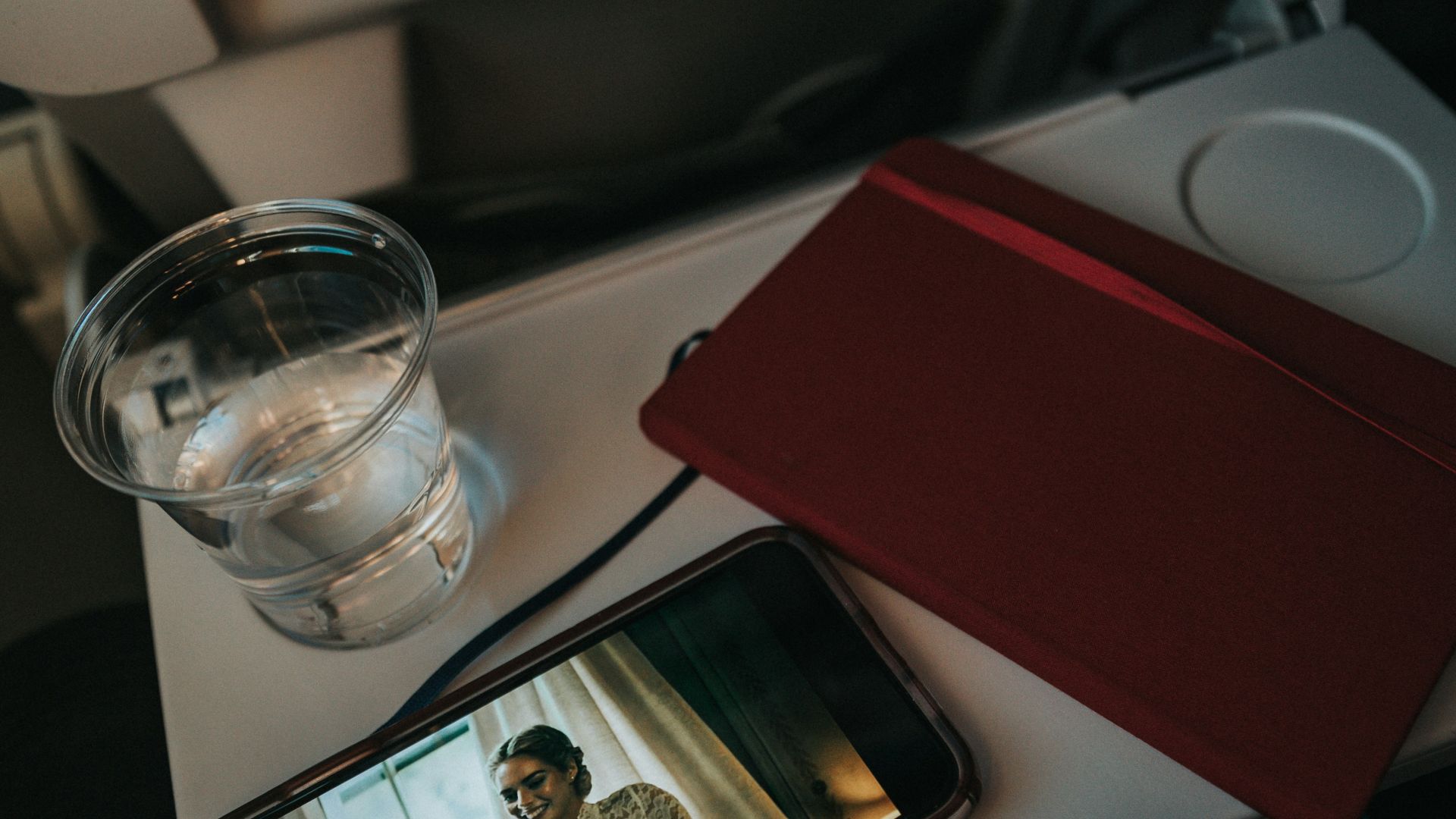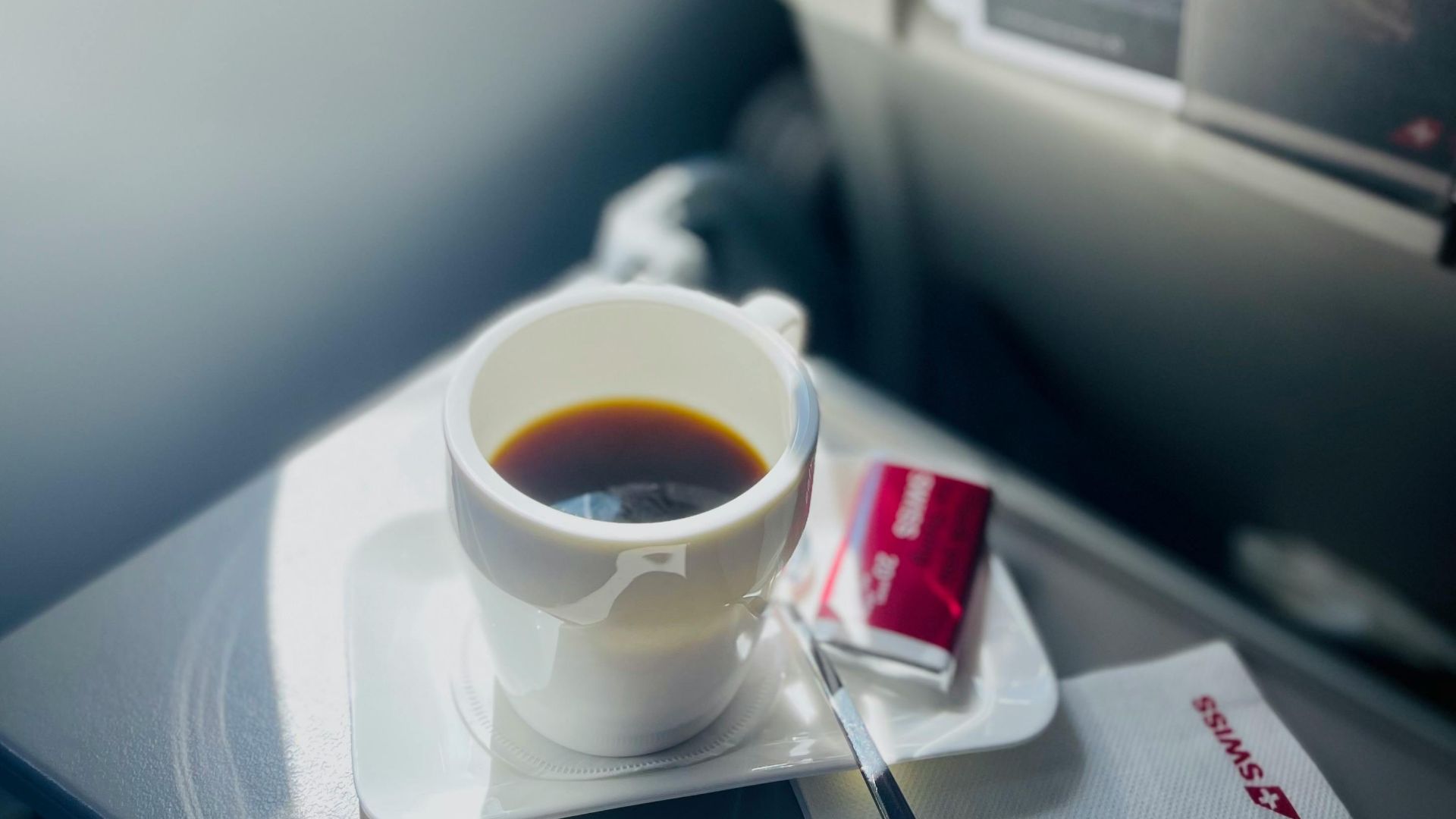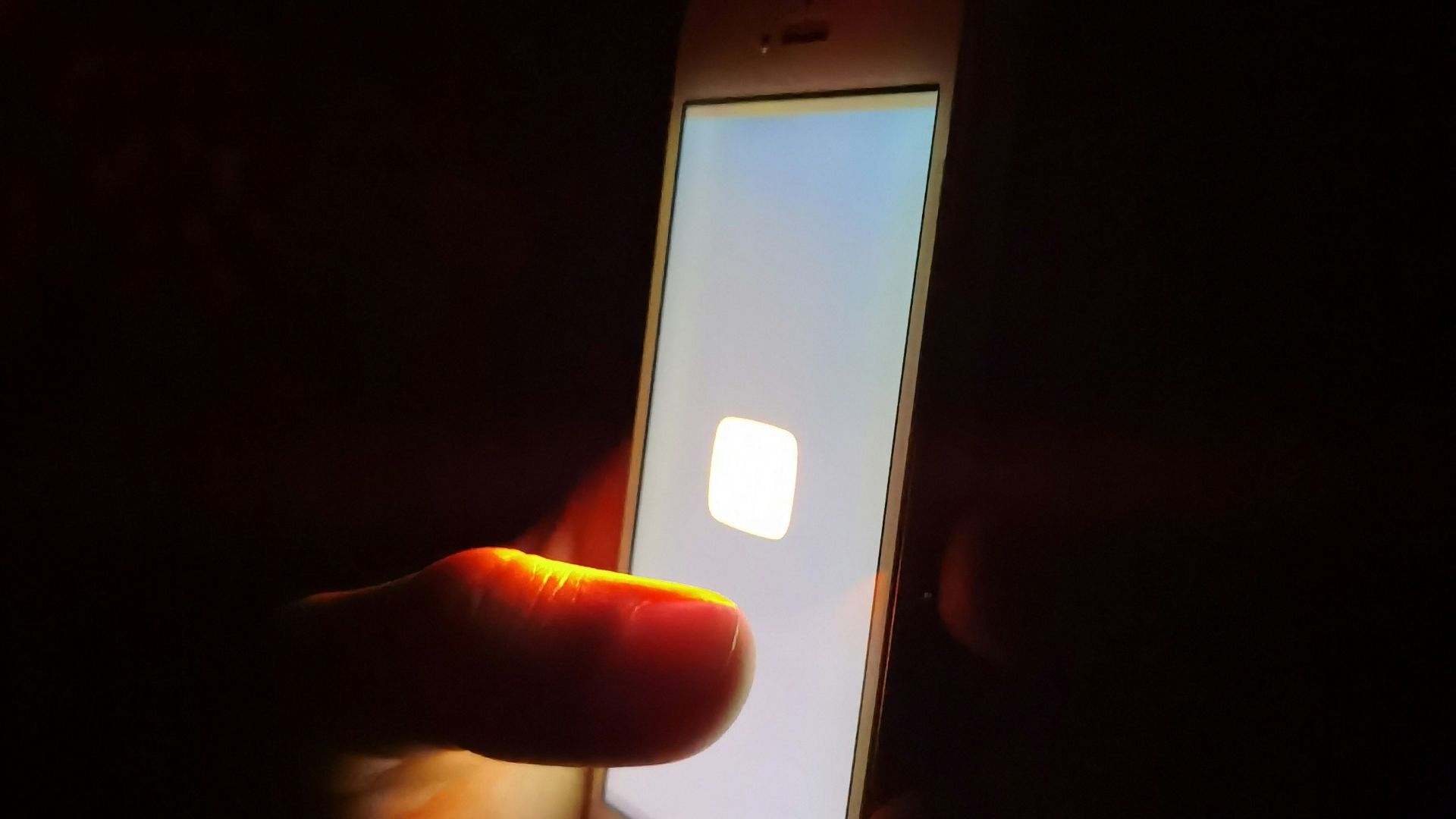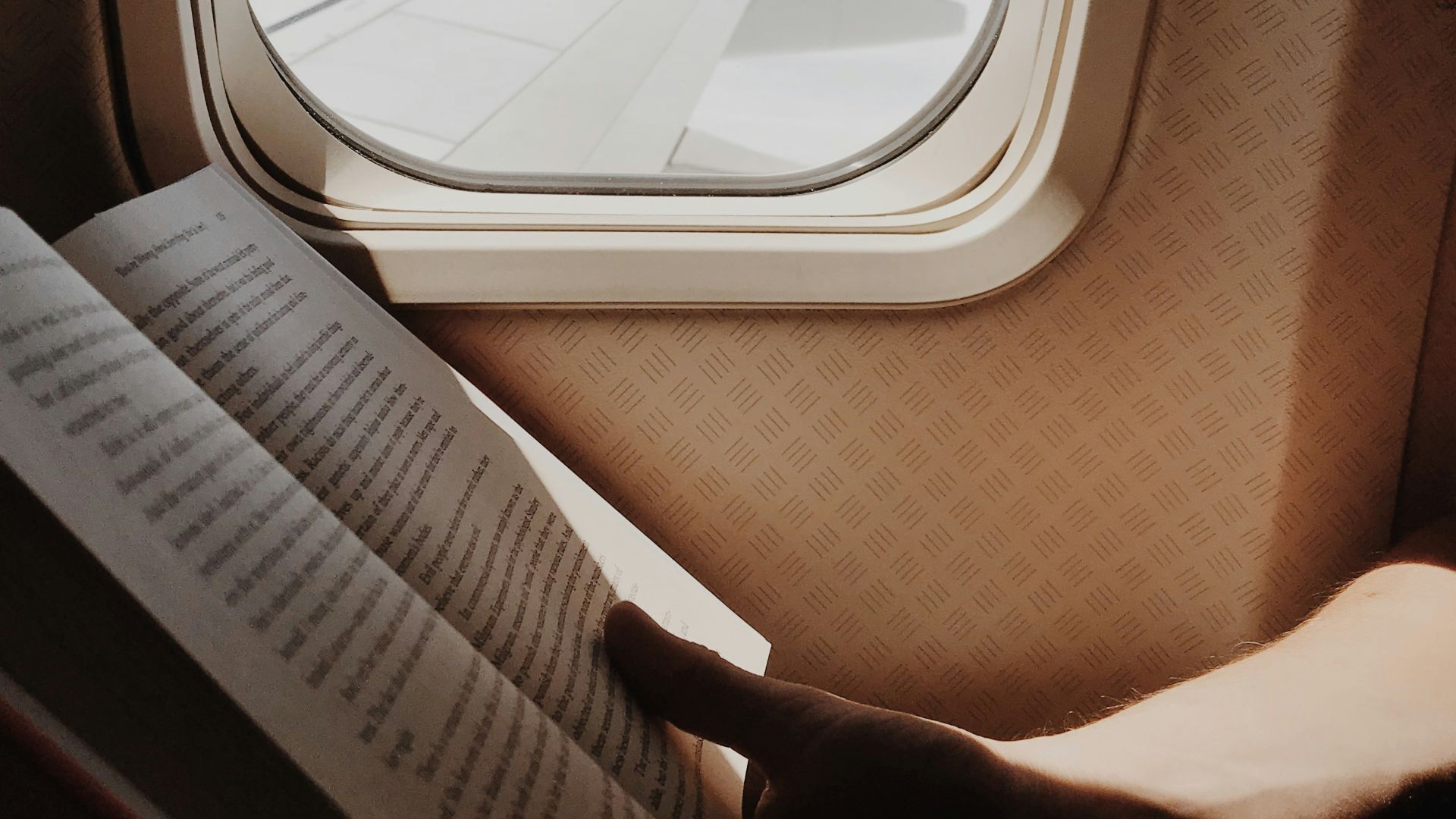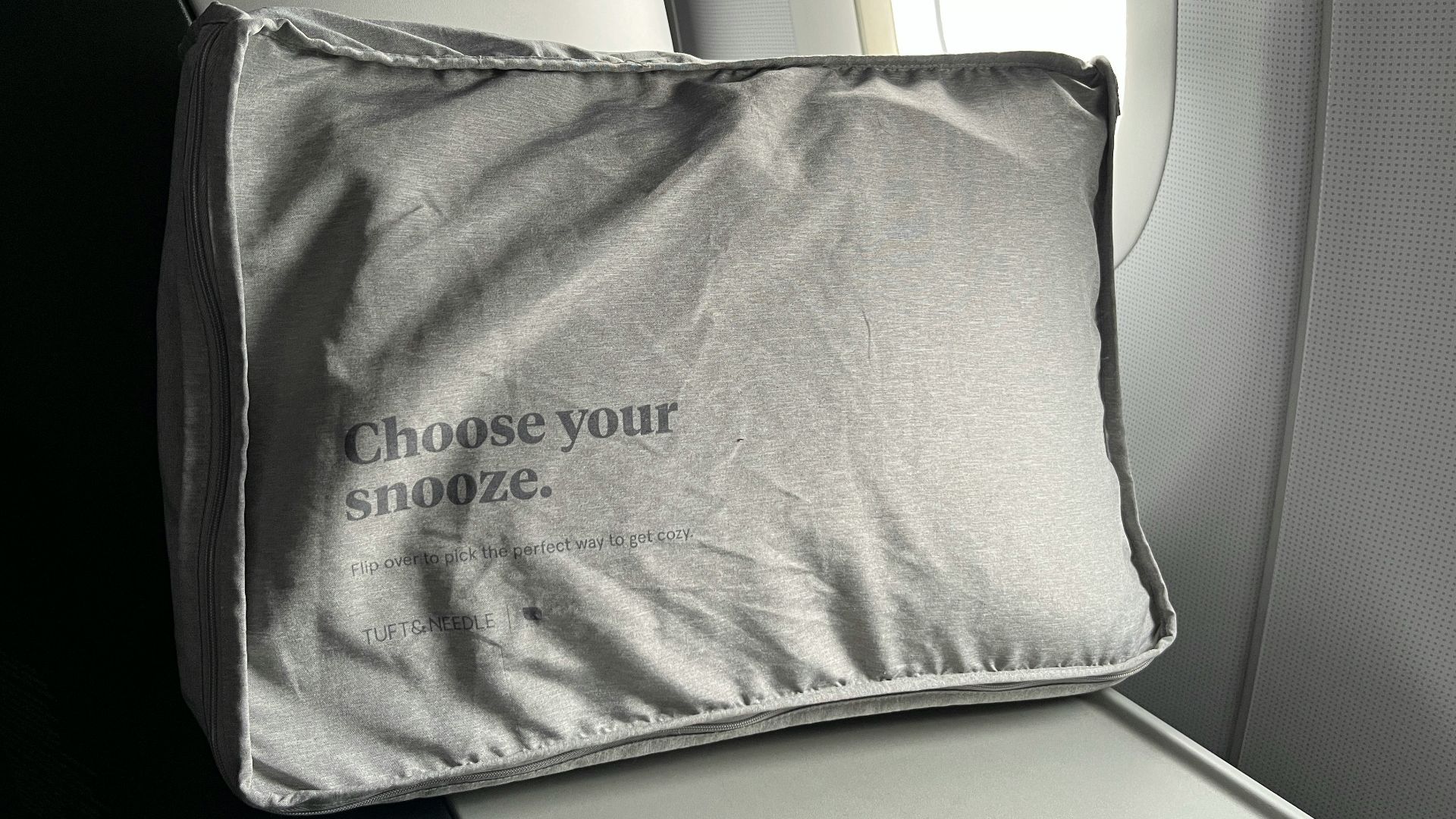Sleep Better While Flying
Catching sleep on a plane sounds like a myth, right up until 3:00 a.m. somewhere over the Atlantic—lights glow, engines hum, and rest feels miles away. Despite the difficulties, jet lag is easy to overcome! These 20 practical adjustments can change everything and help anyone drift off before the snacks arrive.
1. Choose the Right Seat
Window seats offer fewer disruptions and a better chance at undisturbed rest. No kids or people are climbing over you, there's less foot traffic, and you have a place to lean your head. If possible, avoid seats near the galley or bathroom, where noise and movement are constant sleep disruptors.
2. Adjust to the Time Zone
Syncing your schedule before the flight can help you fall asleep more easily. Start sleeping and waking closer to your destination's time zone a few days in advance. This gradual shift helps your body clock adjust and promotes natural sleep cues in flight.
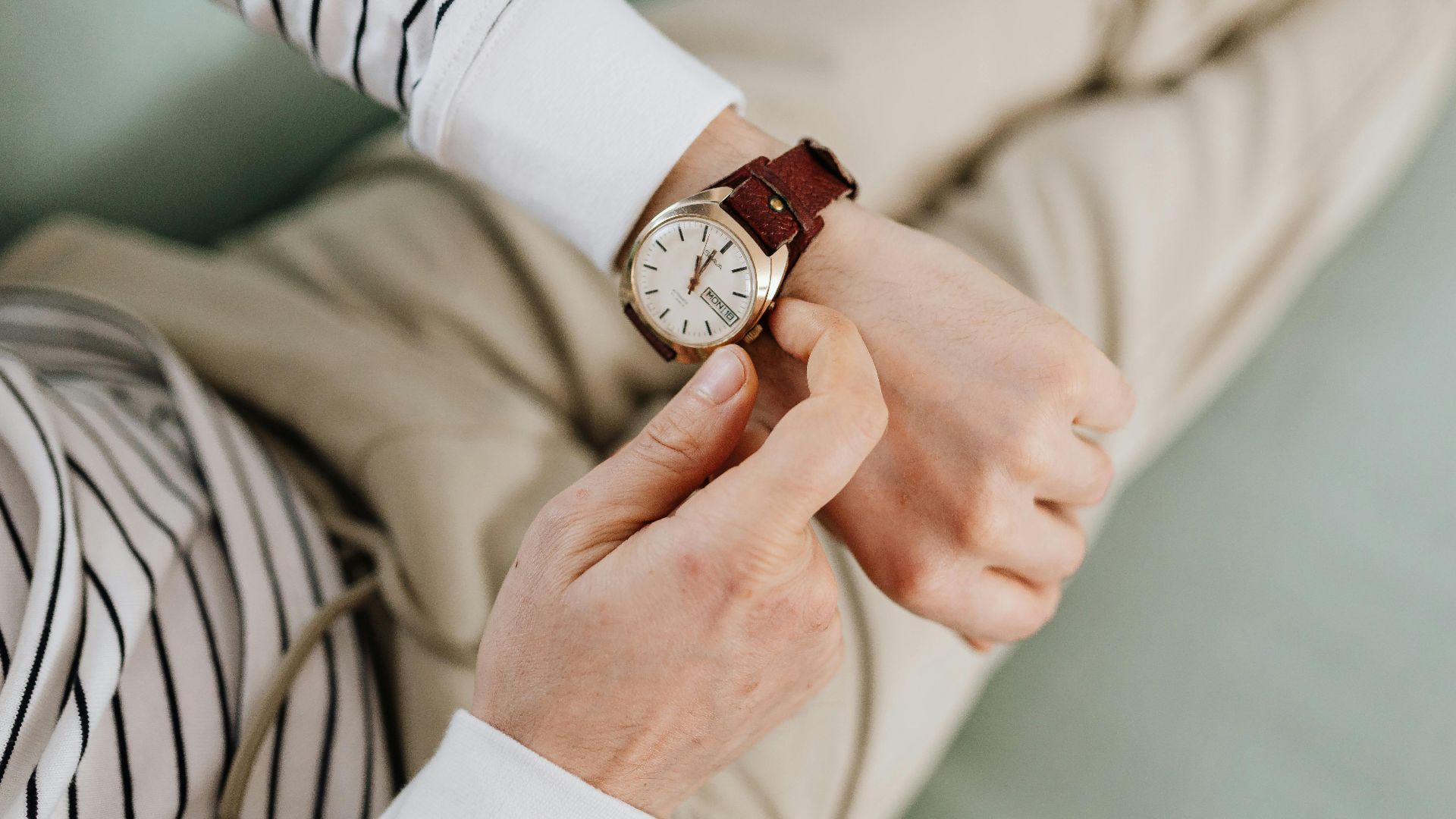 Photo By: Kaboompics.com on Pexels
Photo By: Kaboompics.com on Pexels
3. Pack a Travel Pillow
Not all travel pillows work the same way—you need to find one that supports your neck without pushing your head forward. Luckily, memory foam or wraparound designs provide better support than inflatable types, helping you relax and avoid stiffness during flight.
4. Block Out Noise
Unfortunately, airplane cabins aren't quiet. Babies cry, engines hum, and conversations feel loud. That’s when noise-canceling headphones or quality earplugs can help create a cone of silence. Dimming the sound environment dramatically improves your chances of drifting off and staying asleep longer.
 How to Sleep on a Plane in Economy Class by Carmen Van Kerckhove
How to Sleep on a Plane in Economy Class by Carmen Van Kerckhove
5. Wear an Eye Mask
Cabin lights and screens can sabotage your sleep, especially on bigger planes. A soft, contoured eye mask blocks out light and signals your brain it's time to rest. Go for breathable fabric and a snug fit that won't press uncomfortably on your face.
 How to Sleep on a Plane in Economy Class by Carmen Van Kerckhove
How to Sleep on a Plane in Economy Class by Carmen Van Kerckhove
6. Dress for Sleep, Not Style
Cabins can get chilly, and the seats aren't always cozy. It's best to wear loose, breathable layers that you can easily adjust. (That means no tight jeans or scratchy fabrics!) Comfort is key when trying to sleep in confined spaces, and a cozy hoodie makes a big difference.
7. Time Your Sleep Wisely
Don't try to sleep right after takeoff. Wait until the airline serves meals and dims the lights. If you try to sleep while the cabin is active, it can lead to disturbances and frustration. Just let the flight settle, and then slip into your routine.
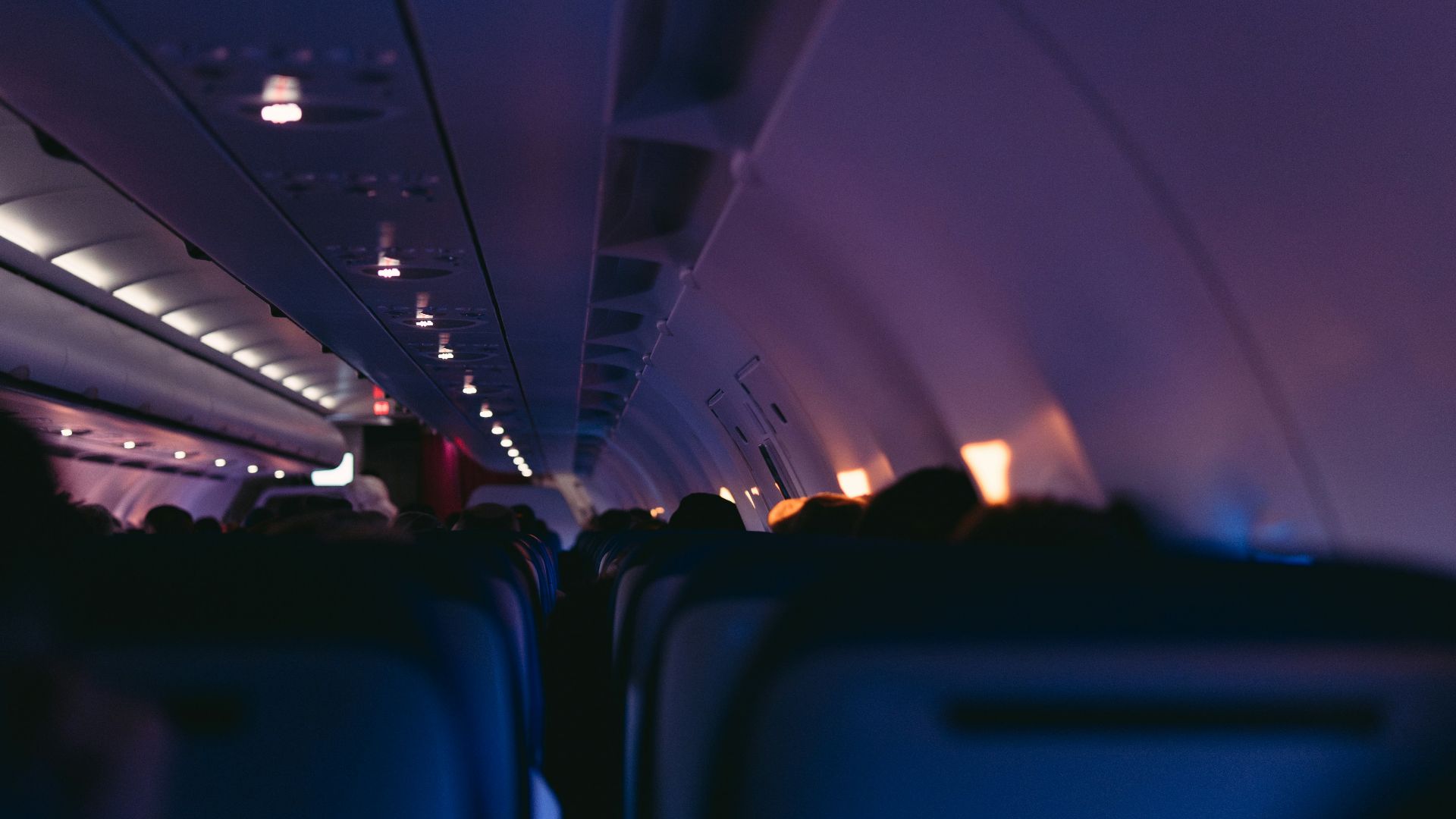 Yevhenii Dubrovskyi on Unsplash
Yevhenii Dubrovskyi on Unsplash
8. Stay Hydrated, but Not Too Much
Cabin air dries you out fast, so make sure you drink water. Just be mindful not to overdo it—excessive fluid can lead to frequent bathroom visits, which ruins sleep even more. Sip steadily before and during the flight, but taper off an hour before you plan to rest.
9. Skip the Alcohol
A drink might feel like a shortcut to sleep, but it backfires later. Alcohol disrupts deep sleep phases and dehydrates you, so while it may help you doze off, staying asleep ultimately gets harder. Opt for herbal tea or water instead.
10. Limit Caffeine Intake
Caffeine lingers in your system for hours, and that mid-air coffee could sabotage your sleep. Avoid caffeinated drinks at least six hours before you plan to rest your head. Choose non-caffeinated alternatives to keep your body in rest mode.
11. Power Down Screens
Like it or not, blue light encourages the brain to stay awake. For your own sanity, shut down phones, tablets, and seat-back screens at least 30 minutes before trying to sleep. If you need to pass the time, read a book or listen to calming music.
12. Use Relaxing Scents
A touch of essential oils, such as chamomile or lavender, can work wonders. Dab a drop on your wrists before takeoff (don't do it during the flight). Aromatherapy helps your brain associate the scent with rest, making it easier to wind down, even in a cramped cabin.
13. Keep Warm With a Blanket
Air conditioning can get surprisingly cold on a plane, especially during long flights. To sleep comfortably, bring a lightweight travel blanket or request one from the crew. Staying warm and cozy helps your body relax and drift into sleep more easily.
14. Recline Strategically
Use that recline button wisely—a slight tilt reduces pressure on your spine and improves blood flow. Just be courteous beforehand and check before leaning back. So long as you're in the clear, the right sleeping angle makes a significant difference in comfort.
 Emirates Economy Class in 2024 - A380 vs 777-300ER Complete Review by Nonstop Dan
Emirates Economy Class in 2024 - A380 vs 777-300ER Complete Review by Nonstop Dan
15. Try Breathing Techniques
Slow, focused breathing can calm the mind and body. Try inhaling for four counts, holding for seven counts, and exhaling for eight counts. This method slows your heart rate, reduces anxiety, and prepares your body to enter a more relaxed, sleep-ready state.
 10 Little-Known Tricks for Perfect Sleep on a Flight by BRIGHT SIDE
10 Little-Known Tricks for Perfect Sleep on a Flight by BRIGHT SIDE
16. Follow a Bedtime Routine
Do your usual sleep prep on the plane: brush your teeth, wash your face, and read a few pages. Repeating familiar habits helps your brain recognize it's time to wind down, and even in a different environment, that routine triggers the same sleep response.
17. Avoid Heavy Meals
Overeating before bedtime can cause discomfort and bloating mid-flight; a full stomach makes it harder to settle in and relax. So, aim to feel satisfied, not stuffed. Choose light, protein-rich meals and avoid greasy or spicy food.
 TRAVEL SURVIVAL GUIDE: 27 tips for surviving a long flight in economy by Build Your Moxie
TRAVEL SURVIVAL GUIDE: 27 tips for surviving a long flight in economy by Build Your Moxie
18. Control Your Environment
Adjust the air vent, tilt the window shade, and secure your belongings. The more control you have, the more comfortable you'll feel. Minor tweaks to your space can reduce distractions and make sleep feel more natural in an otherwise foreign setting.
 Adrien Olichon on UnsplashHow to Sleep on a Plane in Economy Class by Carmen Van Kerckhove
Adrien Olichon on UnsplashHow to Sleep on a Plane in Economy Class by Carmen Van Kerckhove
19. Calm Your Thoughts
Don’t let your mind race with travel plans or personal stress. Use a calming app or preloaded meditation to help lull your brain into sleep. White noise, soft music, or guided relaxation can help you shift focus and settle.
20. Use Sleep Aids Carefully
Melatonin or natural supplements like magnesium can be helpful, but use them sparingly and only when you are familiar with their effects. Avoid relying on prescription sleep medications unless a doctor advises you to do so. The goal is to arrive at your destination without feeling drowsy.


